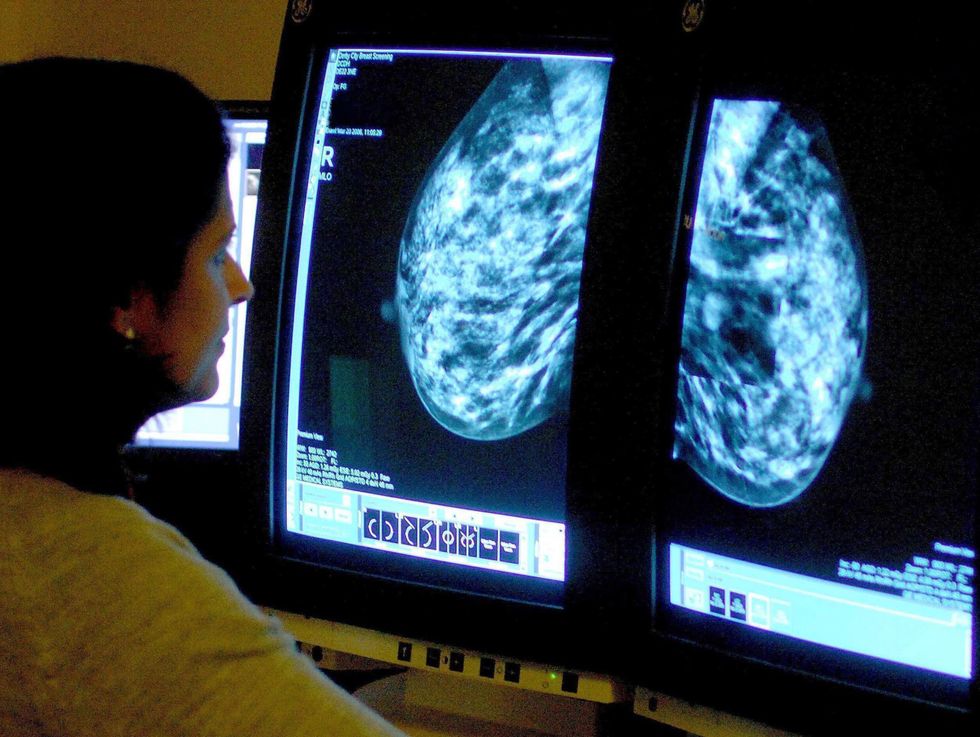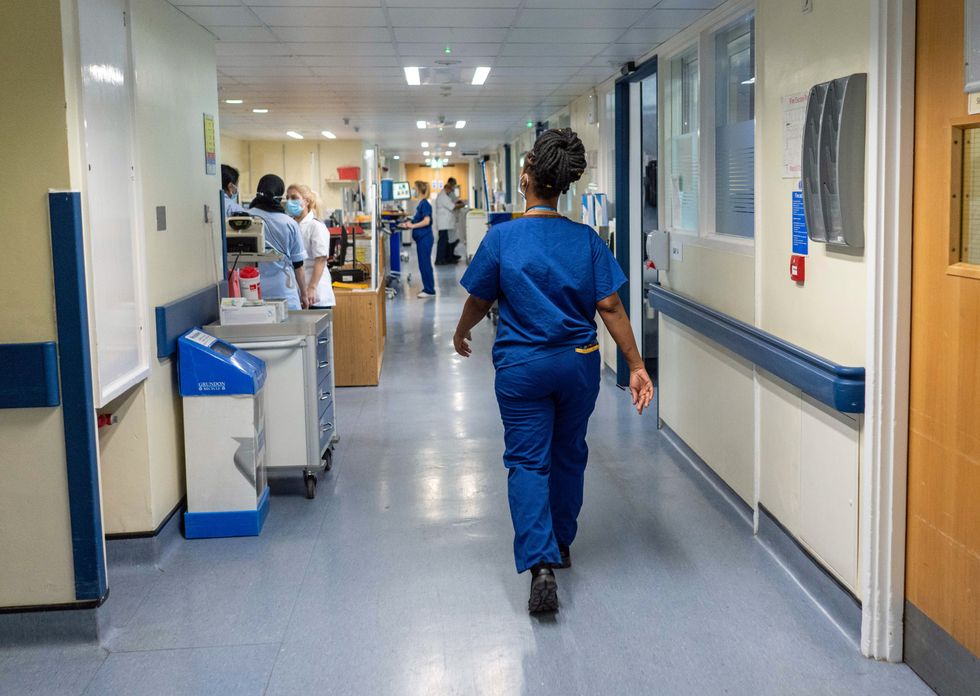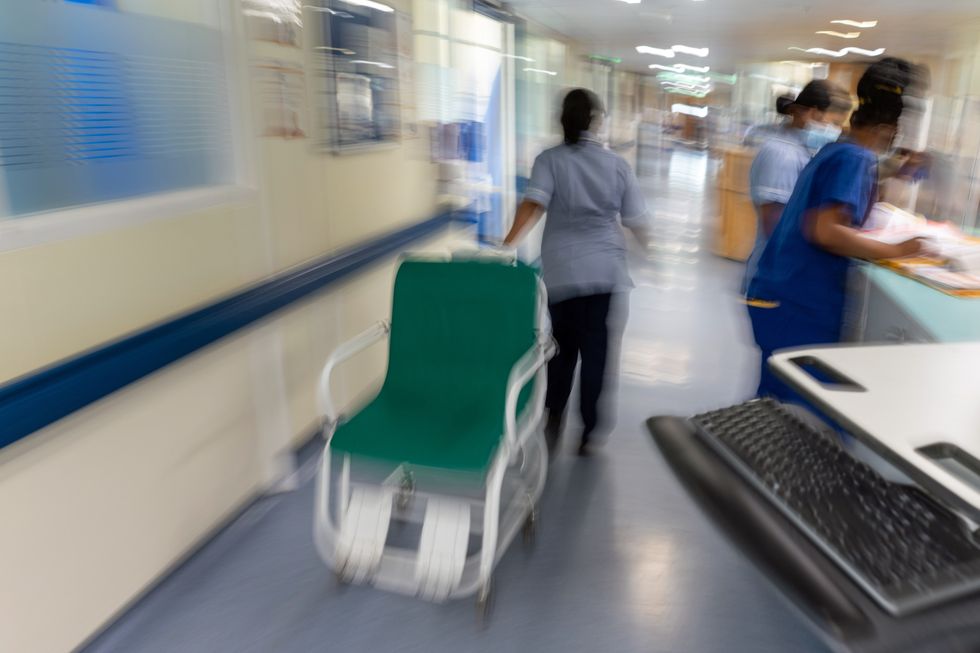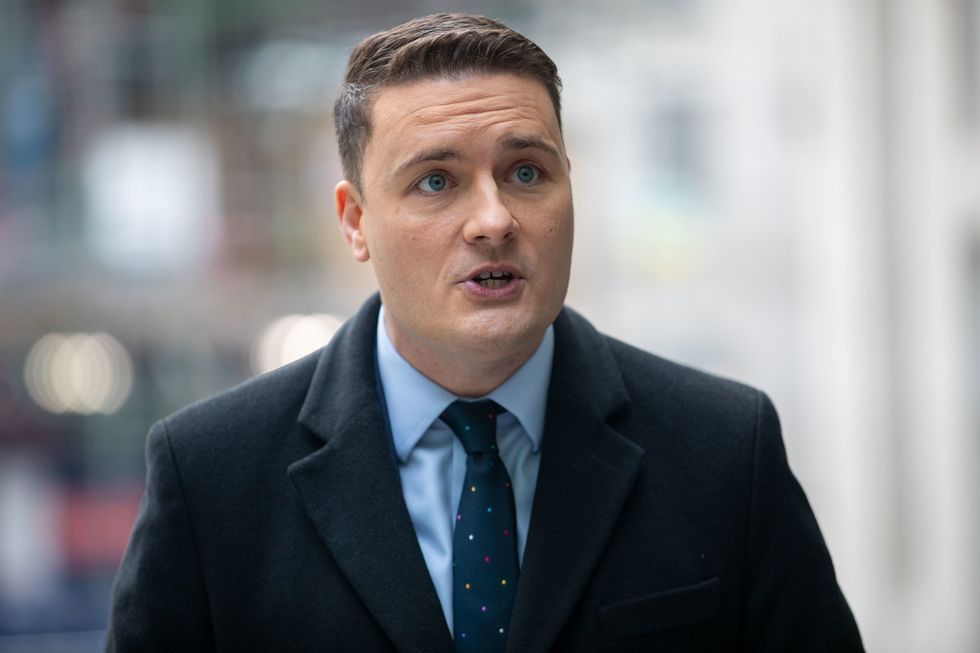
A general view of staff on a NHS hospital ward at Ealing Hospital in London
PA
Rishi Sunak has pledged to cut NHS waiting times after replacing Liz Truss as Prime Minister
Don't Miss
Most Read
Trending on GB News
Only one of England’s 122 NHS trusts has been hitting crucial cancer diagnosis and treatment time targets, a dossier has revealed.
Hospitals across the country are expected to hit 10 separate cancer targets amid concern England is sleepwalking towards a health timebomb.
However, Calderdale & Huddersfield was the only trust to manage to reach the four biggest targets so far in 2023.
The trust was joined by Epsom & St Helier University Hospital and Maidstone & Tunbridge Wells in surpassing the NHS’ two-month wait goal.

A consultant analysing a mammogram, as cancer patients face worsening NHS delays
PA
Charities have warned a combination of declining NHS staff and the knock-on effects of COVID-19 have worsened England’s cancer chaos.
Official targets indicate that 85 per cent of patients should start treatment within two months of being urgently referred to hospital by their GP.
However, around 40 per cent of patients at the worst-performing trusts are seen within the official timeframe.
Overall performances collapsed leaving more than 30,000 cancer patients facing delays since the start of January, MailOnline has revealed.
The national goal has not been met in nine years.
Rishi Sunak has identified tackling NHS waiting lists as one of his five priorities since entering Number 10.
 A stock view of staff on a NHS hospital wardPA
A stock view of staff on a NHS hospital wardPABut the Prime Minister’s efforts look challenging as NHS strikes put further strains on efforts to tackle the backlog of patients waiting over 62 days.
NHS hospitals perform slightly better on one-month waits.
Only 25 trusts have managed to get up to speed with fortnight-long waits.
However, 27 NHS trusts (named below) have never managed to hit the NHS’ 2021 28-day target rolled out by former Health Secretary Sajid Javid.
North Middlesex, Shrewsbury & Telford, Lincolnshire Hospitals, East Kent Hospitals, North West Anglia, East Cheshire, Norfolk & Norwich University, York Teaching Hospital, South Warwickshire University, Northern Care Alliance, East Suffolk & North Essex, University Hospitals of North Midlands, Countess of Chester, Bedfordshire, West Suffolk, Wye Valley, Stockport, Buckinghamshire, Sheffield Teaching, the Queen Elizabeth, University Hospitals Birmingham, Royal Wolverhampton, University Hospitals Sussex, University Hospitals Derby & Burton, Worcestershire Acute, Blackpool Teaching, and Dartford & Gravesham.
Labour’s Shadow Health Secretary Wes Streeting told MailOnline: “Under this government, cancer care in the NHS is in crisis.

Another stock image from a hospital
PA
“Cancer waiting times have worsened every year since the Conservatives came to power.
“Patients face distressing waits for months on end to receive treatment or a diagnosis.
“From my own experience of kidney cancer, I know that every second counts.”
Streeting, who survived kidney cancer, added: “A Labour Government will make it a national mission to improve cancer survival rates by bringing down waiting times and improving early diagnosis.
“Labour will get patients seen on time again by giving the NHS the staff it needs, and will reform the service to make it fit for the future.”

Wes Streeting slammed the Government over NHS cancer targets
PAAn NHS spokesperson also said: “The NHS has been seeing and treating record numbers of people for cancer – a staggering 618,000 more people were checked for cancer in the last year compared with the same period before the pandemic – and hardworking staff have ensured nine-in-ten people start treatment within a month and that patients who need care most urgently are seen promptly, while the NHS is investing in extra diagnostic and treatment capacity.
“Cancer survival is at an all-time high, more people than ever before are being diagnosed with cancer at an early stage when the disease is easier to treat, and a recent survey of over 60,000 people diagnosed with cancer found on average they rated their overall experience of care almost nine out of 10 – it remains as important as ever that people come forward for checks if they are worried they could have symptoms.”
A Department for Health spokesperson added: “Cancer survival rates are improving and more people are being seen and treated by record numbers of staff than ever before – but we know there is more to do.
“That is why we have made cutting waiting lists one of the Government's top five priorities backed by a long-term workforce plan.
“We have also opened 114 community diagnostic centres delivering 4.6 million tests including to detect cancer, and our Major Conditions Strategy will focus on how we can improve care for people with cancer and other long-term conditions.”








